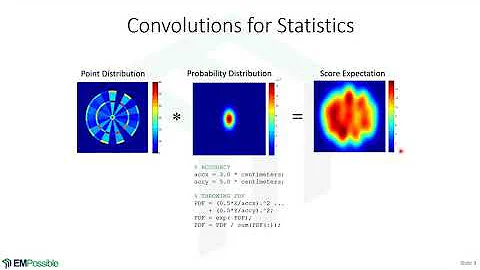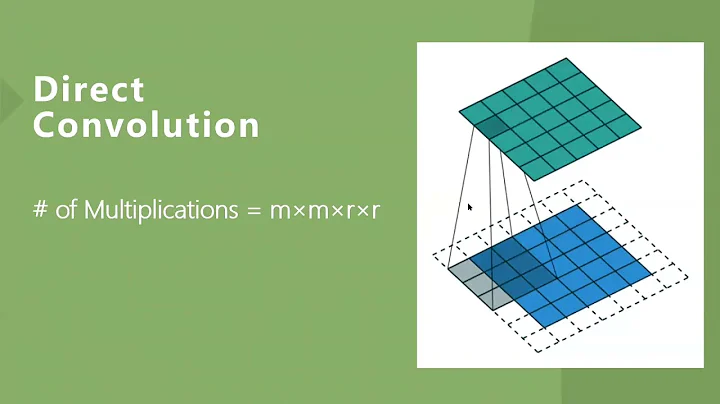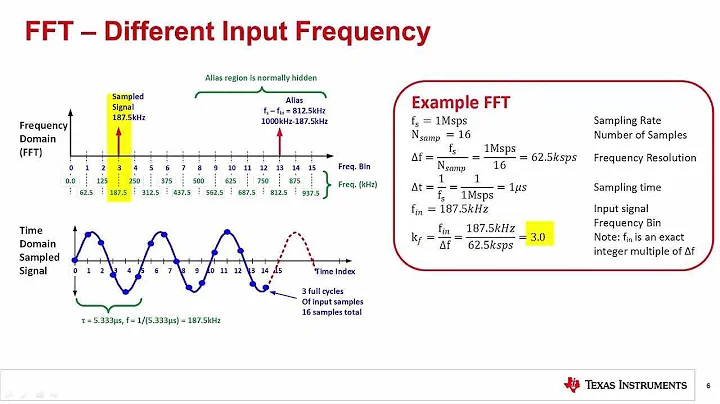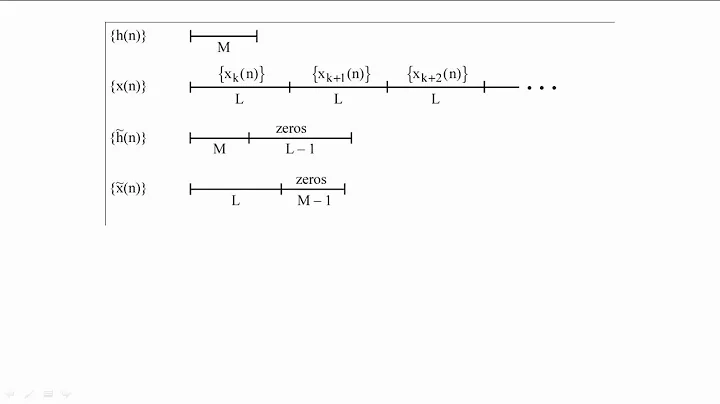1D Fast Convolution without FFT
Solution 1
Convolution is numerically the same as a polynomial multiplication with an extra wrap-around step. Therefore, all the polynomial and large integer multiplication algorithms can be used to perform convolution.
FFT is the only way to get the fast O(n log(n)) run-time. But you can still get sub-quadratic run-time using the divide-and-conquer approaches like Karatsuba's algorithm.
Karatsuba's algorithm is fairly easy to implement once you understand how it works. It runs in O(n^1.585), and will probably be faster than trying to super-optimize the classic O(n^2) approach.
Solution 2
You could reduce the number of indexed accesses to result, as well as the Length properties:
int inputLength = filter.Length;
int filterLength = filter.Length;
var result = new double[inputLength + filterLength - 1];
for (int i = resultLength; i >= 0; i--)
{
double sum = 0;
// max(i - input.Length + 1,0)
int n1 = i < inputLength ? 0 : i - inputLength + 1;
// min(i, filter.Length - 1)
int n2 = i < filterLength ? i : filterLength - 1;
for (int j = n1; j <= n2; j++)
{
sum += input[i - j] * filter[j];
}
result[i] = sum;
}
If you further split the outer loop, you can get rid of some repeating conditionals. (This assumes 0 < filterLength ≤ inputLength ≤ resultLength)
int inputLength = filter.Length;
int filterLength = filter.Length;
int resultLength = inputLength + filterLength - 1;
var result = new double[resultLength];
for (int i = 0; i < filterLength; i++)
{
double sum = 0;
for (int j = i; j >= 0; j--)
{
sum += input[i - j] * filter[j];
}
result[i] = sum;
}
for (int i = filterLength; i < inputLength; i++)
{
double sum = 0;
for (int j = filterLength - 1; j >= 0; j--)
{
sum += input[i - j] * filter[j];
}
result[i] = sum;
}
for (int i = inputLength; i < resultLength; i++)
{
double sum = 0;
for (int j = i - inputLength + 1; j < filterLength; j++)
{
sum += input[i - j] * filter[j];
}
result[i] = sum;
}
Related videos on Youtube
walteram
Updated on June 04, 2022Comments
-
walteram almost 2 years
I need an 1D Convolution against 2 big arrays. I'm using this code in C# but it takes a loooong time to run.
I know, i know! FFT convolutions is very fast. But in this project i CAN'T use it. It is a constraint of the project to not use FFT (please don't ask why :/).
This is my code in C# (ported from matlab, by the way):
var result = new double[input.Length + filter.Length - 1]; for (var i = 0; i < input.Length; i++) { for (var j = 0; j < filter.Length; j++) { result[i + j] += input[i] * filter[j]; } }So, anyone knows any fast convolution algorithm widthout FFT?
-
templatetypedef over 12 yearsAlthough you've said not to ask, why can't you use the FFT? If this is for a class project where it's explicitly prohibited, you should probably tag this as homework.
-








![Fast Convolution: FFT-based, Overlap-Add, Overlap-Save, Partitioned [DSP #09]](https://i.ytimg.com/vi/fYggIQTaVx4/hq720.jpg?sqp=-oaymwEcCNAFEJQDSFXyq4qpAw4IARUAAIhCGAFwAcABBg==&rs=AOn4CLAtxoUPOljVg48T-PGQoSxridzRSQ)